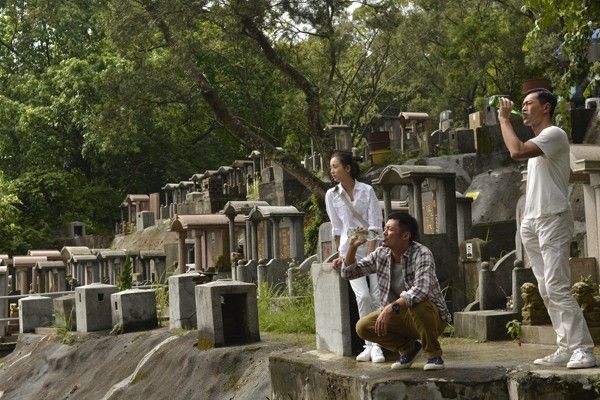Wild City (Ringo Lam, 2015)

After more than a decade of semi-retirement, legendary director Ringo Lam returns to the big screen with a thriller that hearkens back to the golden age of the Hong Kong crime film. Lam made his mark in the late 80s and early 90s with a series of action films–gritty, ultra-violent and grounded in a darkly pessimistic view of human nature and Hong Kong’s future. Movies where everything seemed to be, as many of their titles indicate, ‘on fire’. Rejecting the aspiration toward transcendence of John Woo, or the narrative and thematic ambition of Tsui Hark, Lam’s films best captured the nihilistic urge for chaos at the heart of the Hong Kong New Wave. That particular moment, an apocalyptic age when the prospect of the Handover to the Mainland hung over every aspect of Hong Kong life, had dissipated by the late 90s, when Lam had joined Woo and Tsui in scraping together Hollywood products beneath their talent level (as fine as many of their American films are, and many of them are quite good, I don’t think this point is debatable). When he tired of that, he walked away to spend more time with his family. His only film since the 2003 direct-to-video Van Damme film In Hell was one third of the omnibus film Triangle made with Tsui and Johnnie To in 2007.
But now, his son having graduated from college, he’s back. Wild City stars Louis Koo (Don’t Go Breaking My Heart 2) and Shawn Yue (Love in a Puff) as half-brothers who find themselves embroiled in a classic noir plot: a beautiful woman in distress is on the run from gangsters and is concealing a secret. They help her out (reluctantly at first, but of course they will) and find themselves the target of multiple gangs of villains: local Triads, an imported Taiwanese gang of killers (led by Hou Hsiao-hsien’s favorite avatar Jack Kao, sporting what appears to be a discarded version of Ng Man-tat’s wig from Aberdeen), and a cabal of white collar crooks both local and Mainlander. The plot moves swiftly in a more or less straight line, punctuated of course by a number of action scenes, both physical and vehicular.
While there isn’t a single spectacular set-piece or prodigious display of martial arts talent (ala Donnie Yen in the recent Kung Fu Jungle), Lam’s action sequences are very well assembled: coherent, immediate, and above all fast. The cumulative effect of the speed of the fights and car chases is exhausting. Rather than superheroes, the protagonists of this film are regular guys struggling desperately when they get in way over their heads. Lam keeps the camera moving, shifting perspective between standard shots and the use of increasingly-omnipresent surveillance footage (a technique that’s quickly becoming standard in the years since it was pioneered by Milkyway Image’s 2007 film Eye in the Sky). It’s a masterpiece of the quick-cutting hand-held style, the movements of the camera working with the movements on screen, punctuated by frequent editing that works to amplify and clarify the action rather than blur and submerge it. It’s one of the few action films I’ve seen using this style that can rightly be called “elegant”. Less effectively, Lam occasionally makes use of the plastic CGI that infects so much contemporary Hong Kong cinema, rendering weightless impacts that should be more tangible, but for the most part his stunts look and feel natural.
While adopting the narrative form of his classic thrillers, Wild City nonetheless feels very different. Far from the doom hanging over City on Fire and Prison on Fire or the essentially post-apocalyptic Full Contact, this new Lam seems almost hopeful. His 21st century Hong Kong is glossy and electric and as dangerous as ever, but there’s a new spirit animating the relationship between the two brothers. Koo, building on his soulful work in Don’t Go Breaking My Heart 2 (and thankfully not his mopey performance in Overheard 3), plays a straight arrow, a man who always wanted to be a cop but gave it up to protect his dumbass younger brother. He owns a bar now (doesn’t drink, of course), haunted by desaturated flashbacks (something he shares with the female lead, played too anonymously by Tong Liya). He’s still in the bar at the end, but he seems somewhat more at ease. His last words, delivered with an audaciously gorgeous dissolve, point to something beyond the nihilism of youth, a sigh of a wistful annihilation.
